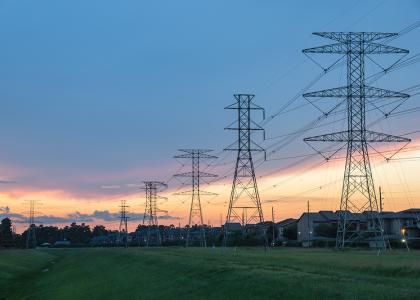This is not how your grandparents saved energy. They may have told you to turn off the lights or put on a sweater. They offered good advice, but times have changed beyond what they probably ever imagined. Technology is making it possible to do so much more. It gives us “intelligent efficiency,” now moving faster than ever.
Consider how smart phone apps help you navigate around traffic or smart thermostats adjust your home’s temperature automatically. They are examples of what ACEEE has dubbed “intelligent efficiency” -- the use of sensors, connected devices, data analytics, and the Internet of Things to save energy. It may be the key to scaling energy efficiency in all sectors of our economy.
As we’ll discuss at our third annual Intelligent Efficiency Conference next week in Austin, intelligent efficiency is changing how we do business. A smart thermostat, for example, asks how warm or cool you want to be, collects information from your home, accesses data in the Cloud that you didn’t even know existed, and uses that information to optimize both your comfort and energy use. You will have no more need to understand the math behind the magic than you do when you ask Google to find you a restaurant.
On a societal scale, intelligent efficiency is going to change our energy markets. Automated control of buildings will help utilities improve network reliability and efficiency. Smart thermostats will respond to demand signals to reduce the grid’s peak load, and business customers can respond to a time and locational price signal from grid operators.
Like most issues involving IT, the uses of intelligent efficiency are quickly evolving. Stakeholders across the policy spectrum are scrambling to stay on top of the latest technological developments and to understand how they will affect the energy sector. They need to ensure existing policies adapt and new policies don’t have unintended consequences.
Will changes in federal policy help or hurt?
While recent elections at the federal and state levels could impact the future of energy efficiency, advances in intelligent efficiency appear unstoppable. The private sector is creating new business models that leverage technology to track savings and monetize the social value of investing in energy efficiency.
But will the newly elected help move us forward? As we all know, policy can lead, follow, or get in the way. Let’s talk about it!
Find out what’s coming next and be part of the future at our upcoming Intelligent Efficiency Conference. While we’ll discuss these issues and the impact of the 2016 election, we’ll also give registered attendees a chance to toot their own horn. This year, we’re offering two Trading Space sessions for shameless self-promotion. We want to spur connections that lead to new research, products, services, and projects. Two of last year’s Trading Space presenters collaborated to apply for and win a Department of Energy grant. So join us and don’t get left behind.




